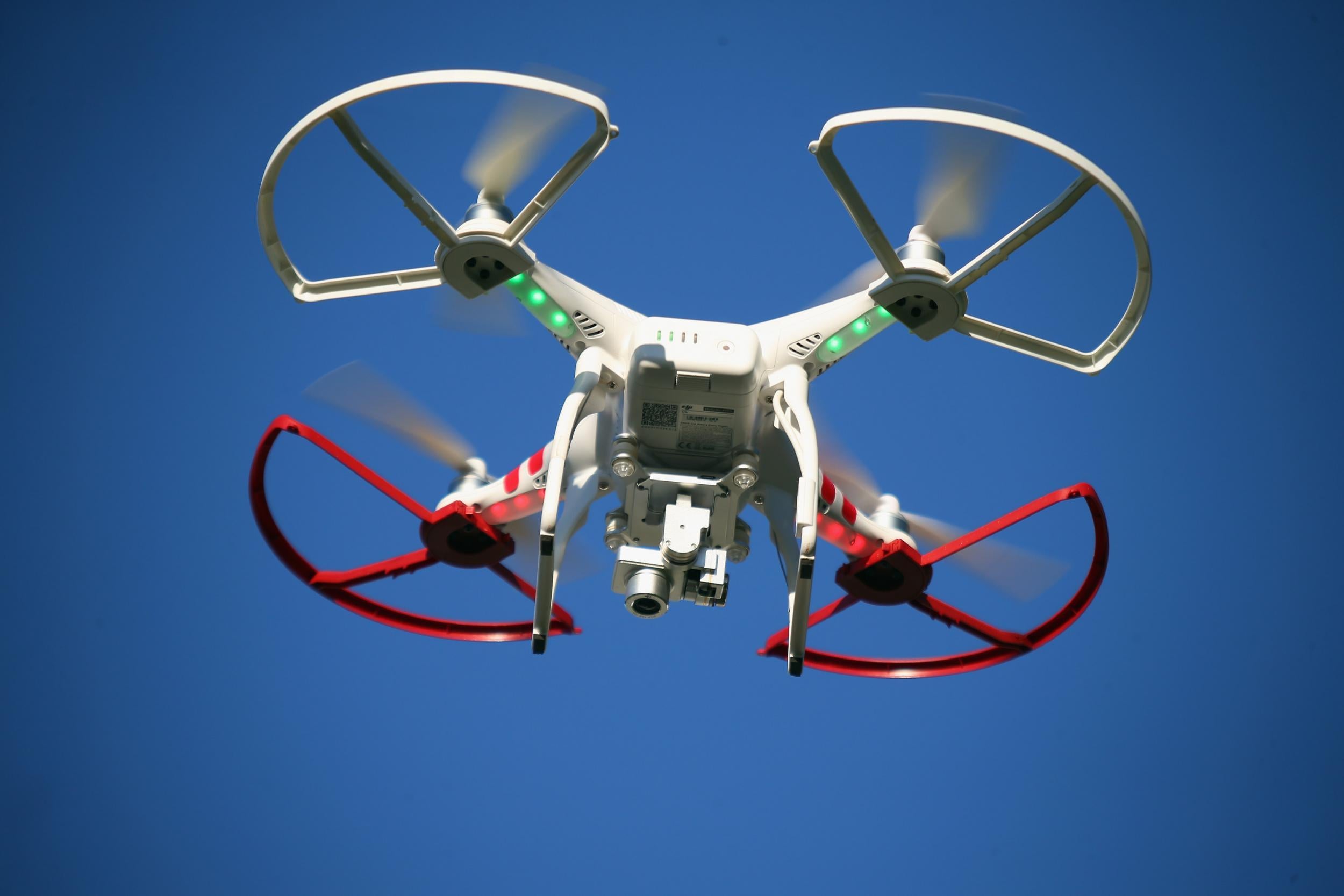Drones hitting passenger jets 'could result in uncontrolled engine failure', former RAF pilot warns
Calls for tests amid a recent spate of near misses

Airline pilots are calling for tests to be carried out to discover what would happen if a drone hit a passenger jet, amid a recent spate of near misses.
The British Airline Pilots Association (Balpa) wants the Department for Transport (DfT) and the Civil Aviation Authority (CAA) to back research into the possible consequences of such a collision.
Former RAF and British Airways pilot Steve Landells warned that a drone hitting an airliner could result in an uncontrolled engine failure or a smashed cockpit windscreen.
Some 23 near misses between aircraft and drones were investigated by the UK Airprox Board (UKAB) in just six months according to its latest reports, including 12 given an A rating - meaning there was "a serious risk of collision".
Mr Landells, Balpa's flight safety specialist, said there is a large amount of data on the effects of bird strikes on planes, but he insisted that this is not a true representation of what would happen with a drone because "birds don't have a big lump of lithium battery in them".
He told the Press Association it is "very likely" that the battery of a standard quadcopter drone entering the core of a jet engine would cause an uncontained engine failure, as happened to a BA plane which became engulfed in flames and smoke as it was taking off in Las Vegas in September.
"You end up with very high velocity bits of metal going anywhere they like. That could be through fuel tanks, through hydraulic lines and even into the cabin," he said.
"Losing the engine is not going to cause an aircraft to crash because they are designed to fly with one engine down.
"But an uncontained engine failure is going to be different every time. That could be very serious indeed."
Mr Landells explained that he wants testing with drones to be carried out because it appears none has been done before.
"The first thing we want to do is get a drone or at least the critical parts of a drone flying at a windscreen of an aircraft," he said.
"The indications so far with computer modelling are that you'll end up with penetration of a windscreen.
"One possibility is that the battery smashes the windscreen and the inside layer of the windscreen shatters and you end up with a lot of glass in the cockpit, probably moving at quite high speed.
"As a pilot, I don't want to be sitting there when that's going on."
He added: "There's also a possibility that it might just bounce off. We don't know at the moment."
Mr Landells said the initial tests could cost around £250,000.
Philippa Oldham, head of transport and manufacturing at the Institution of Mechanical Engineers, described the consequences of a drone hitting an airliner as "such an unknown thing" that would depend on a number of factors such as the size and speed of the drone and the location of the collision.
"There's a lot of scenario planning going on around that at the moment," she said.
"The impact potentially could be anything from nothing to a destruction of an engine."
People who fly drones close to planes could be convicted of endangering the safety of an aircraft which has a maximum prison sentence of five years, the CAA said.
A CAA spokesman said the regulator has a number of ongoing schemes aimed at raising awareness of the safety requirements for using drones, such as its Dronecode campaign.
He added: "We are already working alongside the DfT and industry partners to better understand the potential risks and outcomes of a drone hitting a manned aircraft."
The DfT issued a statement which read: "Public safety is our first priority and we are working very closely with the Civil Aviation Authority, industry and airline operators to improve our understanding and knowledge of this emerging technology.
"It is important to ensure that clear and proper regulations are in place and we will set out more details in a Government strategy on the use of drones later this year."
Press Association
Join our commenting forum
Join thought-provoking conversations, follow other Independent readers and see their replies
Comments
Bookmark popover
Removed from bookmarks